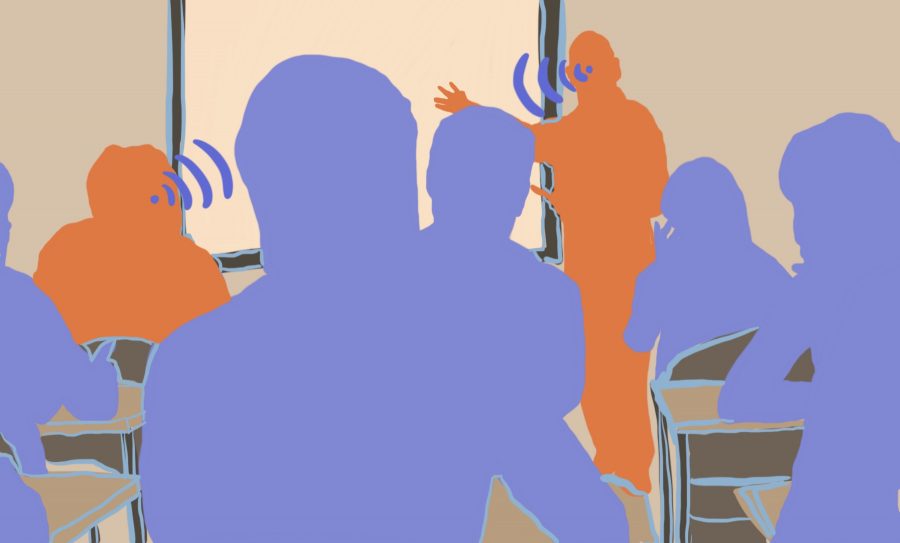There have been at least 20 high school and college shootings in the United States since Dec. 3, 2019. Even more recently, two students were shot and killed in their dorm room Feb. 3 at Texas A&M University-Commerce in what officials call “a targeted, isolated event.” As the frequency of campus shootings increases across the country so should our proactivity in ensuring students and faculty are prepared for the worst.
This is why I was impressed when one of my professors began the semester by explaining what we should do if there was ever an active shooter situation, severe weather or any other safety hazards during class time. At that moment, I realized none of my previous professors had ever explained active shooter safety procedures, despite the steady increase of these events.
In order to increase student safety, all professors should dedicate time at the beginning of the semester to go over what procedures the class should take in case of an active shooter situation.
“(We) have resources for faculty, including a trifold pamphlet to help faculty recognize and appropriately respond to different levels of disruption,” said Sara Kennedy, directory of strategic and executive communications for the Office of the Dean of Students.
However, while this pamphlet gives advice to faculty and others about how to handle uncomfortable classroom situations, it does not directly address potentially life-threatening situations.
Specific instructions for how to deal with an active shooter can be found on the UT website, which encourages UT community members to “run, hide and fight,” depending on what the situation calls for. There are also emergency classroom guides in every classroom. Although these resources are very useful, few students know about them. This is why faculty should briefly discuss a plan during class.
UT alumna A’nysha Aileen was grateful when one of her professors mentioned safety
procedures during her class.
“I was glad that he talked about classroom safety because the topics that he brought up were important,” Aileen said. “My only issue was that the topics were a little intense for the very first day of class. I left that day feeling a little scared.”
Even though this is a scary topic that can be uncomfortable to talk about, it’s also important to have a plan.
UTPD Chief David Carter says he appreciates faculty that share this information with their classes and also wants the community to participate in more safety related workshops.
“We recognize that there’s a lot of important curriculum the professor has to get through and that also you’re here to receive a first class education, and we don’t want to get in the way of that,” Carter said.
Although professors have a lot of responsibilities and class material to cover, safety should be a top priority and deserves to be addressed. Many students and faculty don’t know or don’t have a plan to protect themselves during an emergency situation. With more open conversations better established plans students and faculty can better protect themselves and be more safe.
The UTPD hosts Civilian Response to Active Shooter event workshops on demand and hosts public sessions for anyone in the UT community that wants to learn more about how to stay safe in these situations. While programming like this is helpful, it only reaches a small number of the student body, which means there’s a need for a more comprehensive plan to be put in place.
UT should require faculty to discuss safety procedures at the beginning of each semester. Although it’s scary to think about, it’s scarier not to know. With more conversations students and faculty can be prepared for the unthinkable and therefore safer because of it.
Goodrich is a government and African and African Diaspora Studies senior from Dallas.





















